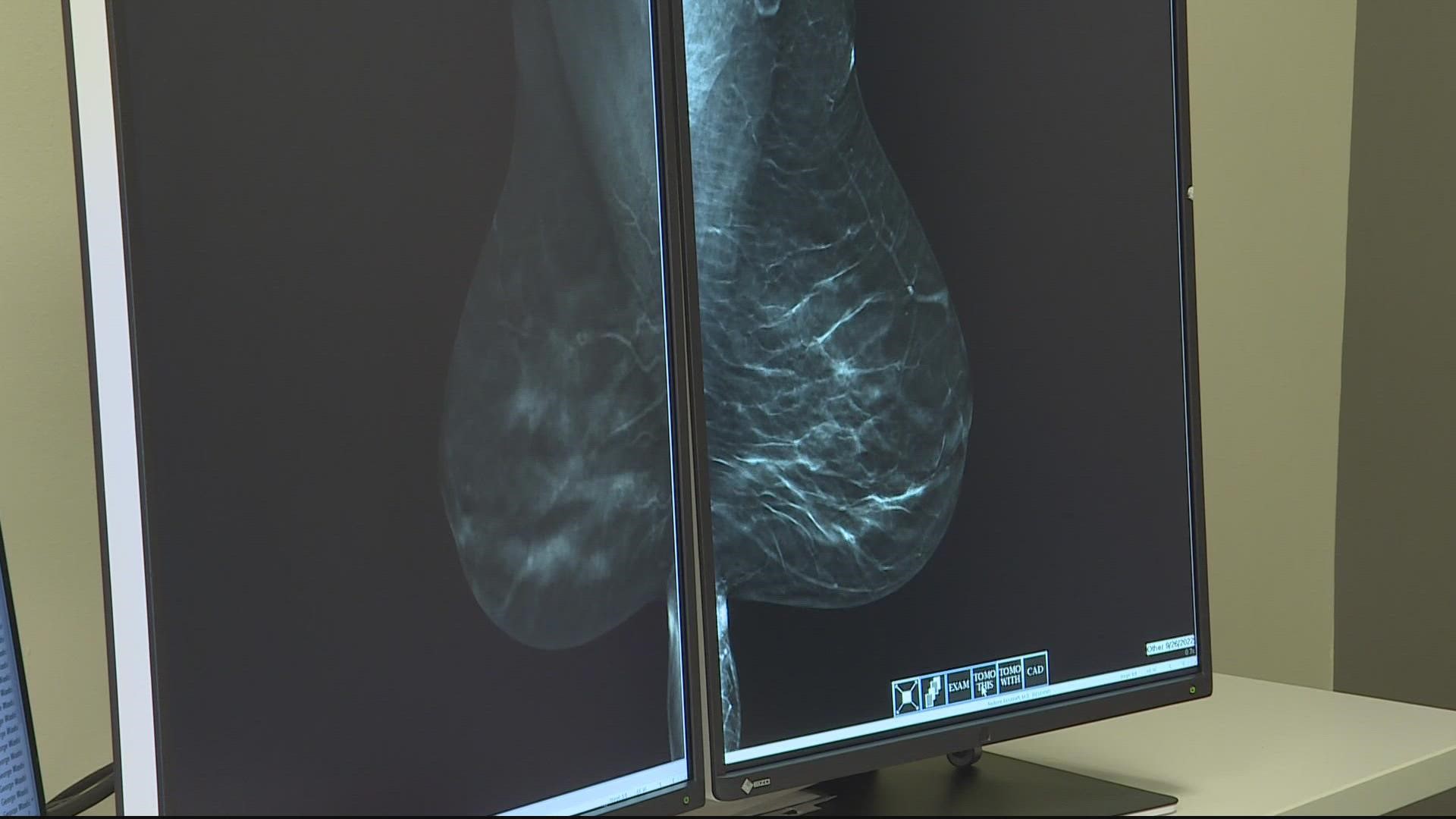WASHINGTON — It's in your phones and websites -- and now it's in mammograms. It's artificial intelligence, and doctors say it could help detect breast cancer even earlier.
Radiologists like Dr. Rachel Brem, who serves as the George Washington Cancer Center's Director of Breast Imaging and Intervention, have seen thousands of mammograms.
But, “we're all human," she said.
Sometimes, people miss things or don't have as much training as Dr. Brem and her team, who specialize in breast imaging.
So, in the next six weeks, Dr. Brem says their radiology team is adding artificial intelligence to screening.
“It works like spellcheck on your computer, right? So it will circle an area, very specific area of [the breast and] tell you what's on it. It will even give you a likelihood of malignancy, what percentage likelihood that that area on the mammogram is," she said.
"So does that look really similar to thousands of prior cancers? Or does that look like something that rarely turns out to be a cancer? So the radiologist can implement all of that and factor all that information in," Brem said.
Dr. Brem said most mammograms in the U.S. are done by general radiologists, so this tool will be a big help in detecting cancers early.
For her, advancements like these are personal.
“When I was 12, my mother had breast cancer," she said. "And it was devastating for our family. Then, at the age of 37, when I was trying some ultrasound equipment one evening, as part of my job, I found my own breast cancer.”
Her mom beat her cancer when she was a child, and Dr. Brem is also a survivor, but ever since she's dedicated her life to preventing and catching breast cancer early.
She has big goals for the future, too.
“In my dream world is where a woman comes in, we find very small cancers with the ever increasing tools that we have to identify them, that we could perhaps treat them right there, and then we have the opportunity to make it a one stop shop," she said.
The ultimate dream, of course, is to completely prevent breast cancer one day.
Dr. Brem said also on the horizon is an ultrasound that would allow doctors to tell if a lump is malignant without a biopsy and ionized radiation -- which would help minimize invasiveness.
On the horizon is an ultrasound that will allow doctors to tell if a lump is malignant without a biopsy – and ionized radiation.
Dr. Brem also started The Brem Foundation to advocate for education and advancements – and give more women access to screening.
The foundation has helpful videos online to help you know what to ask your doctor about your risk and what young women should know, for example.

